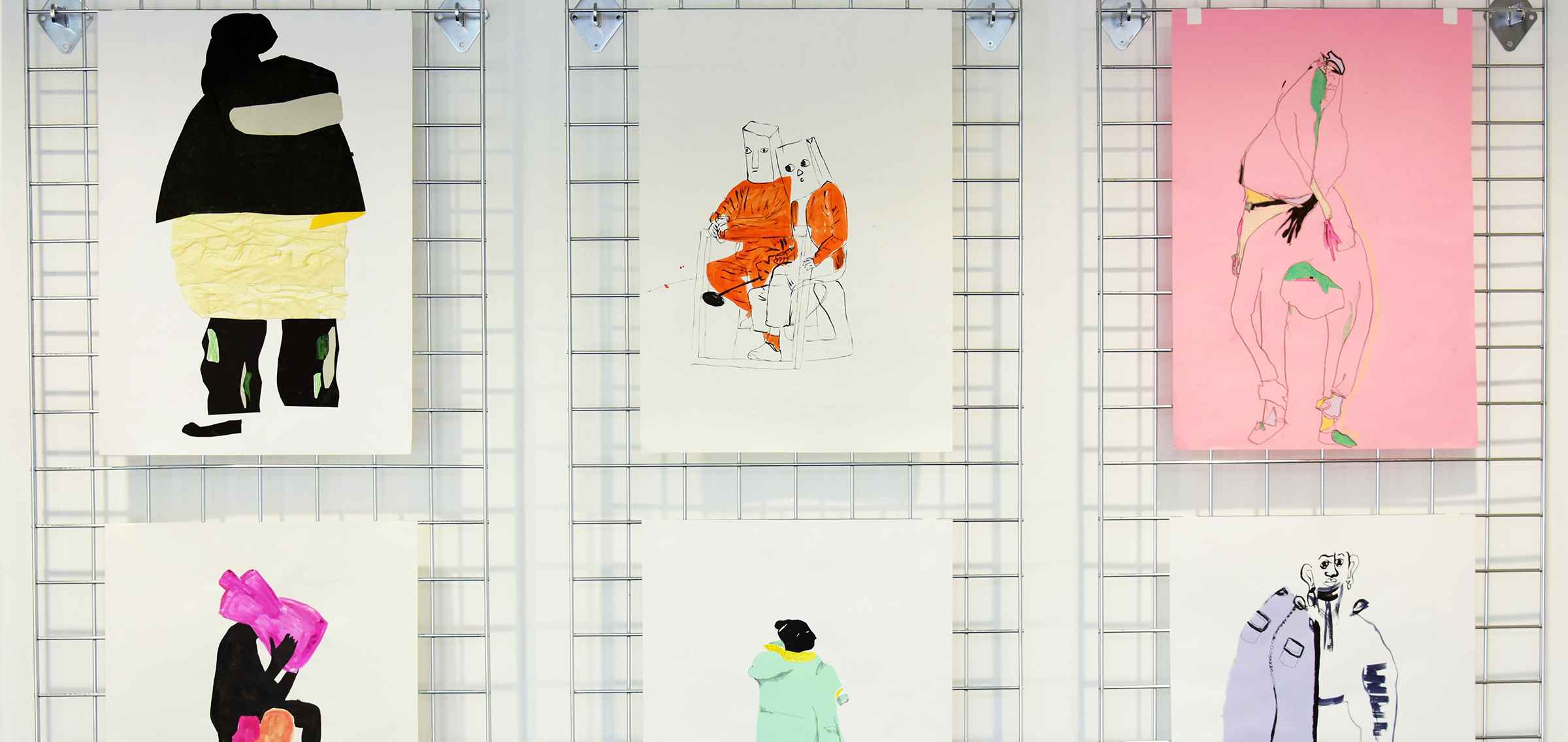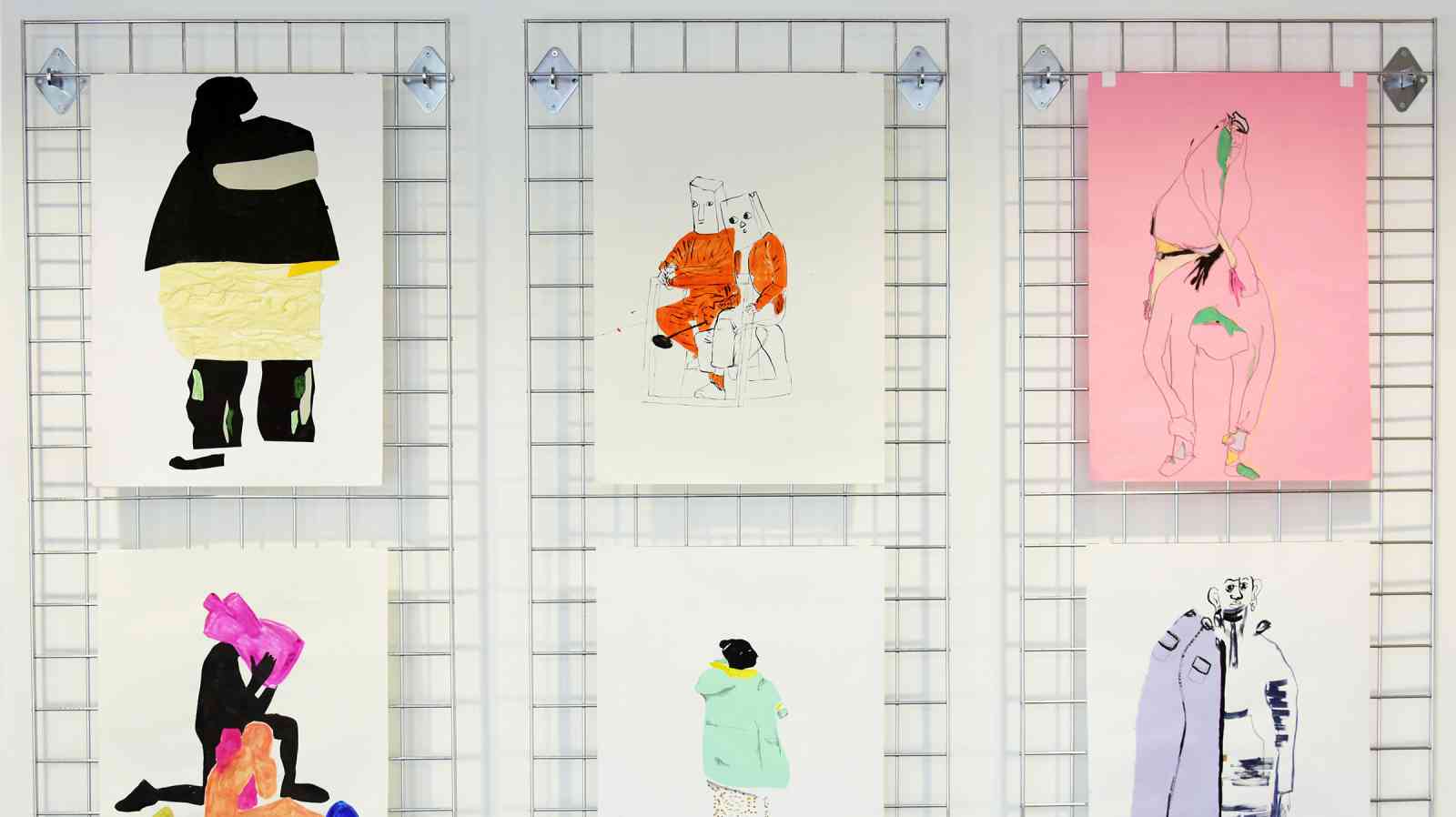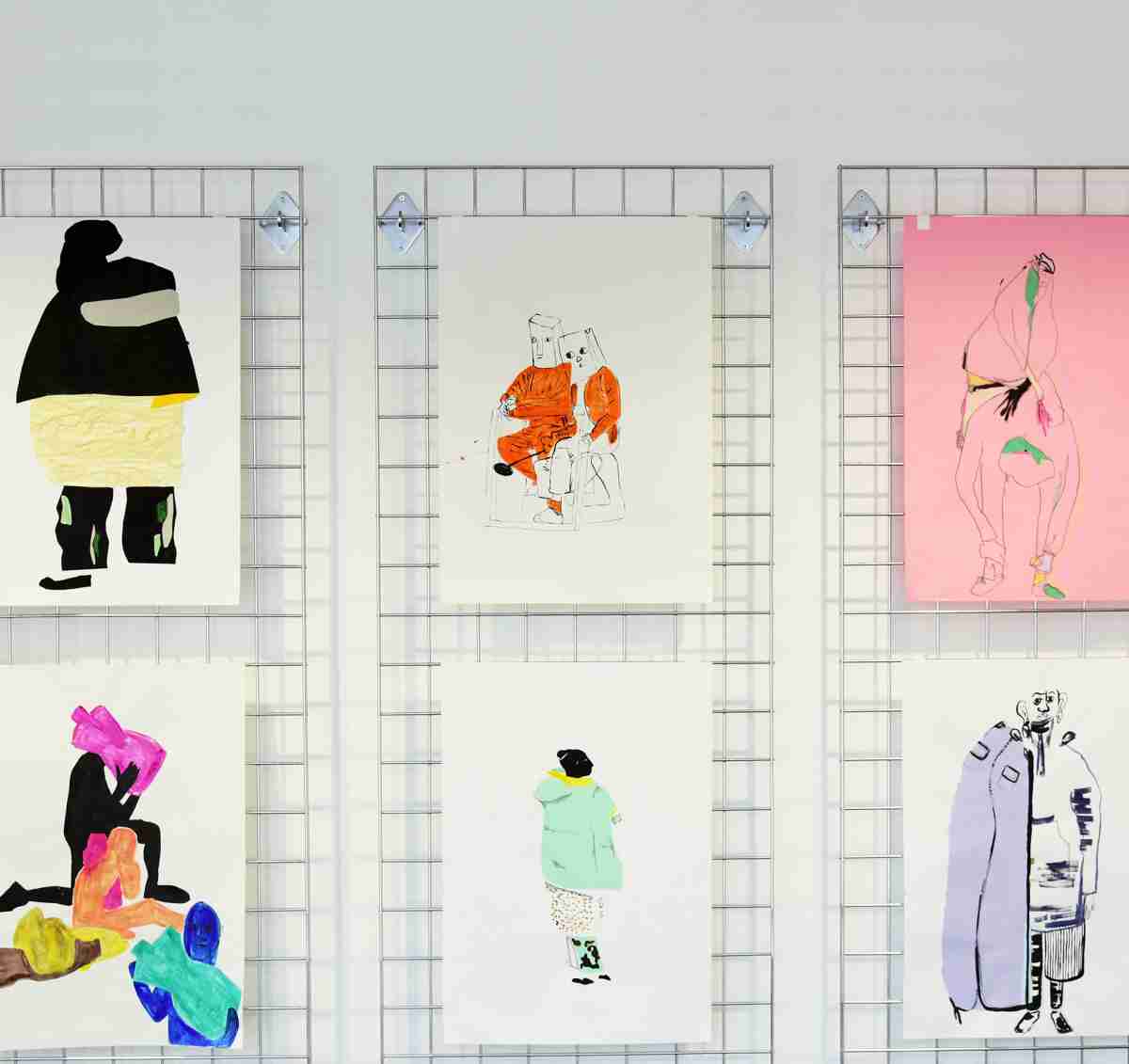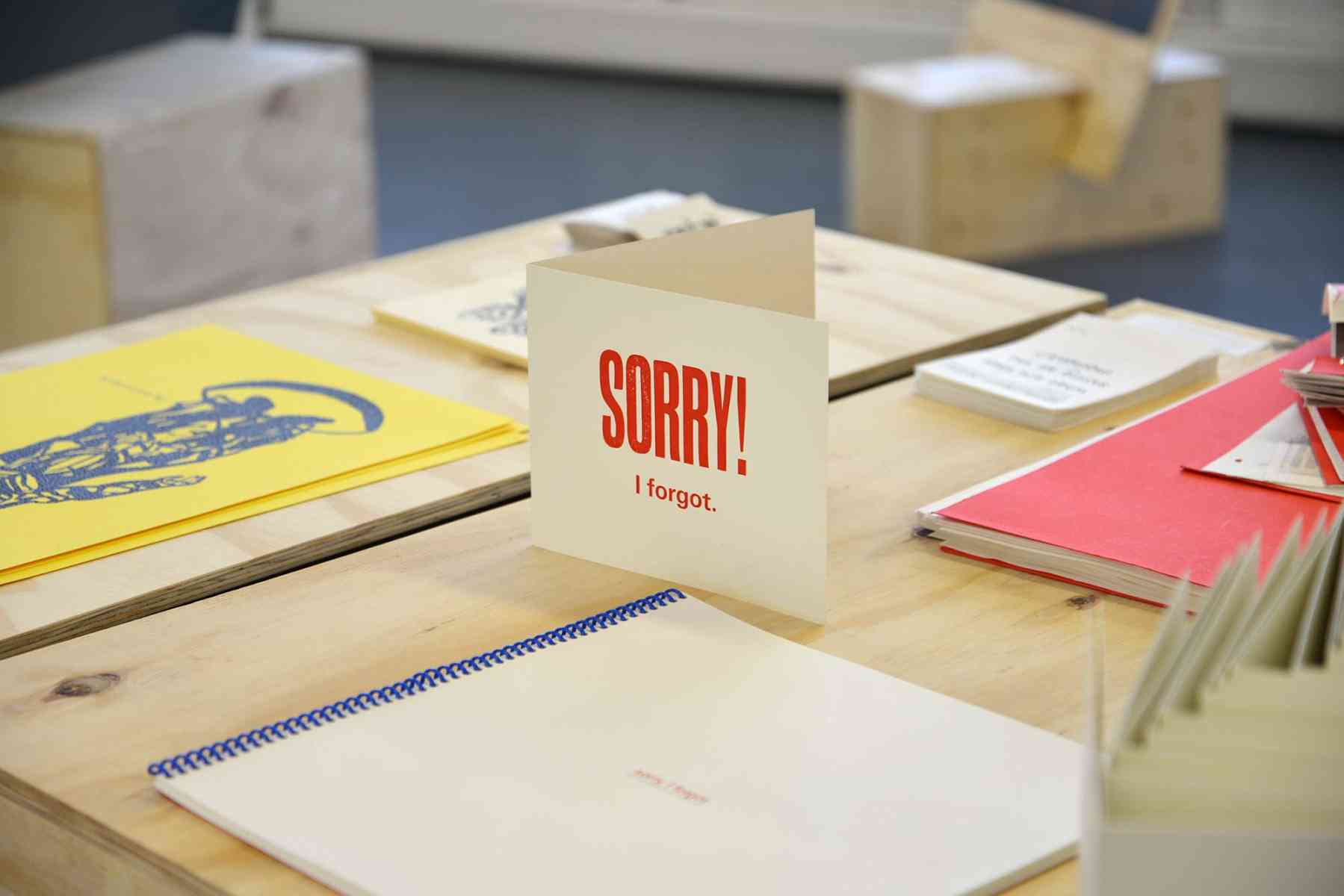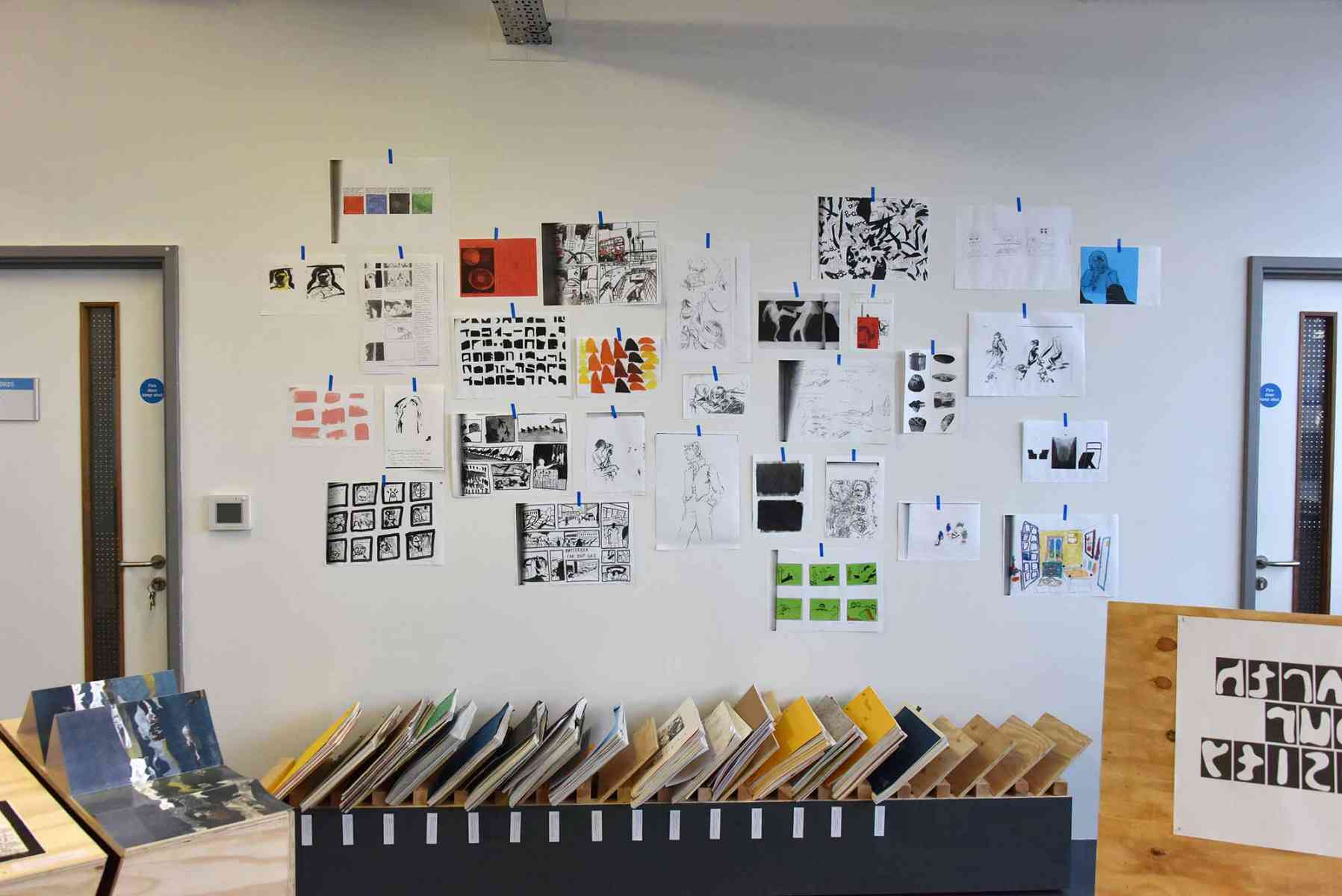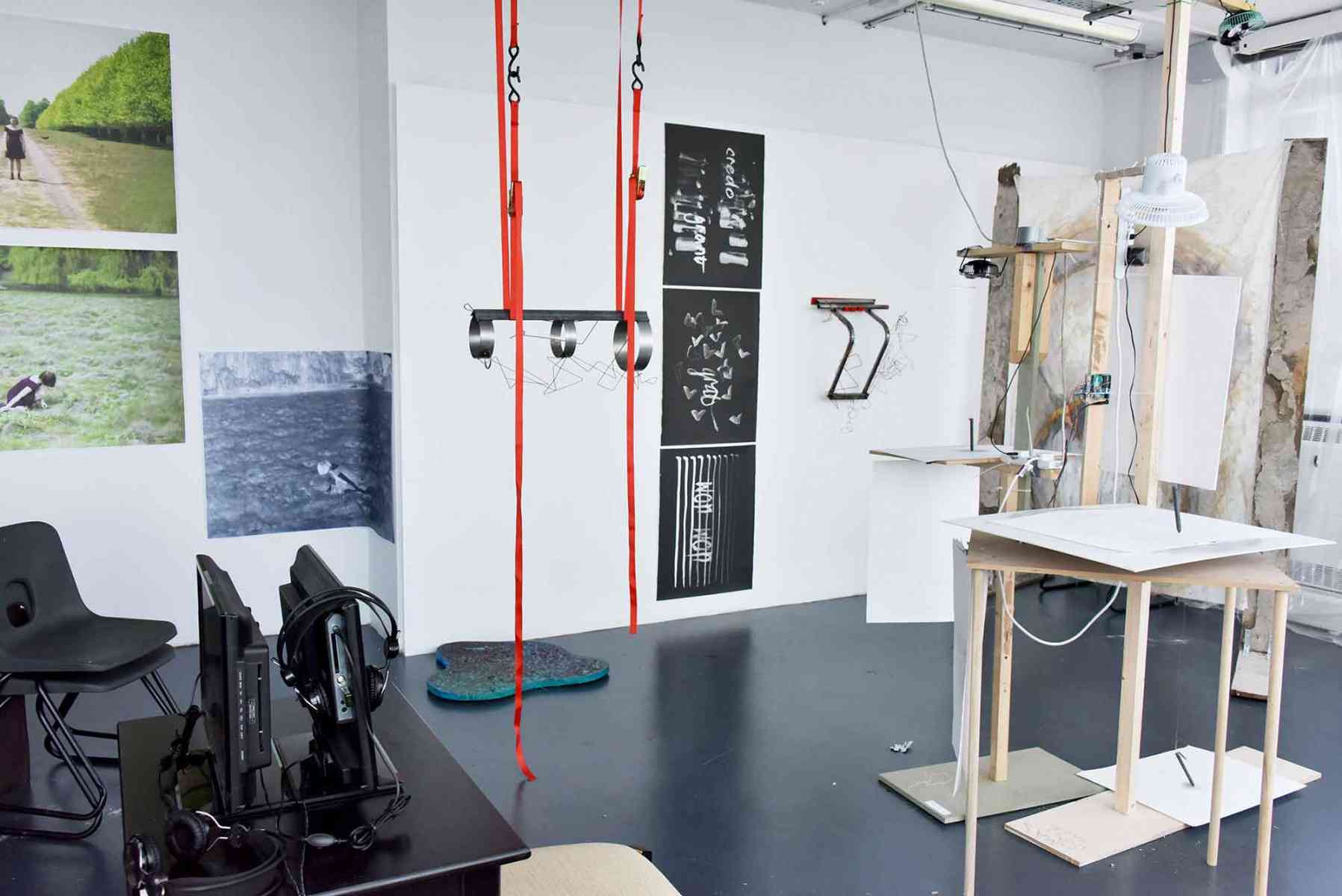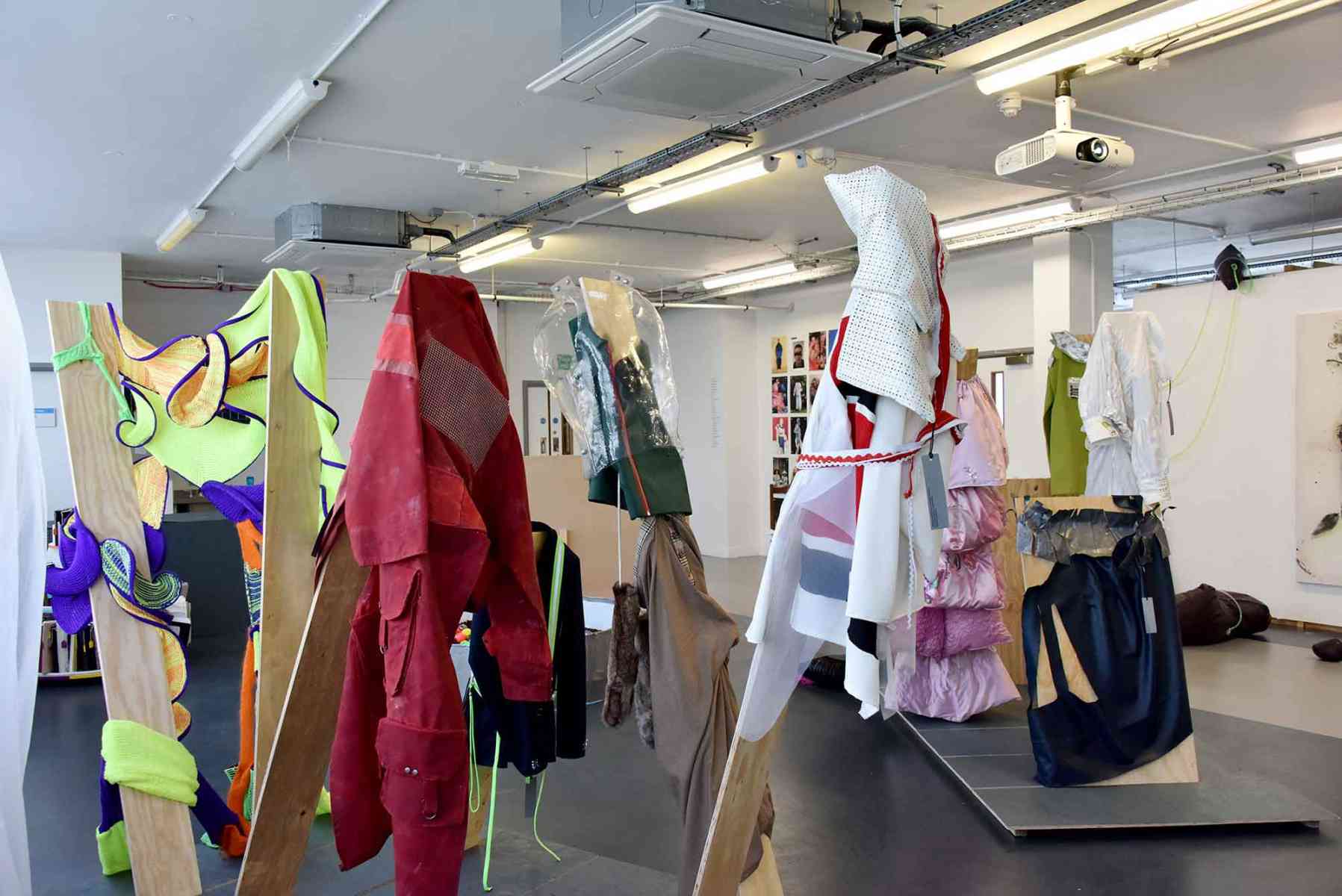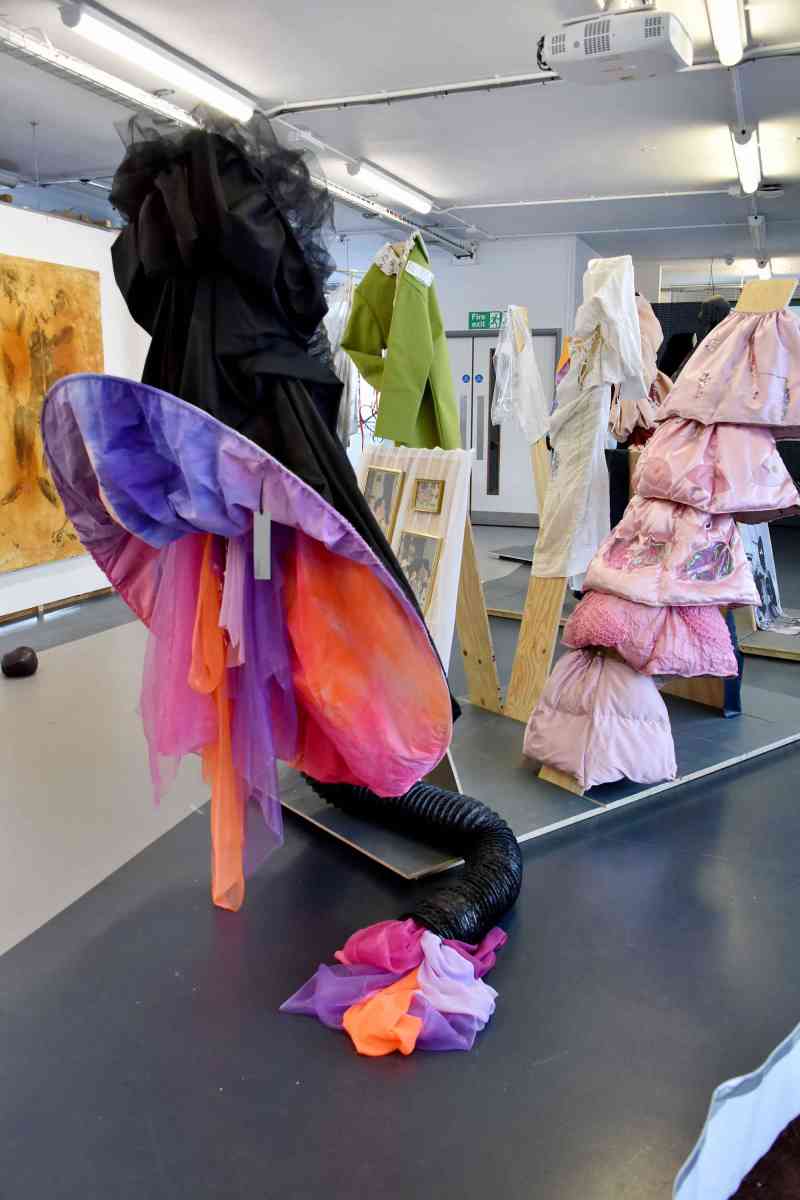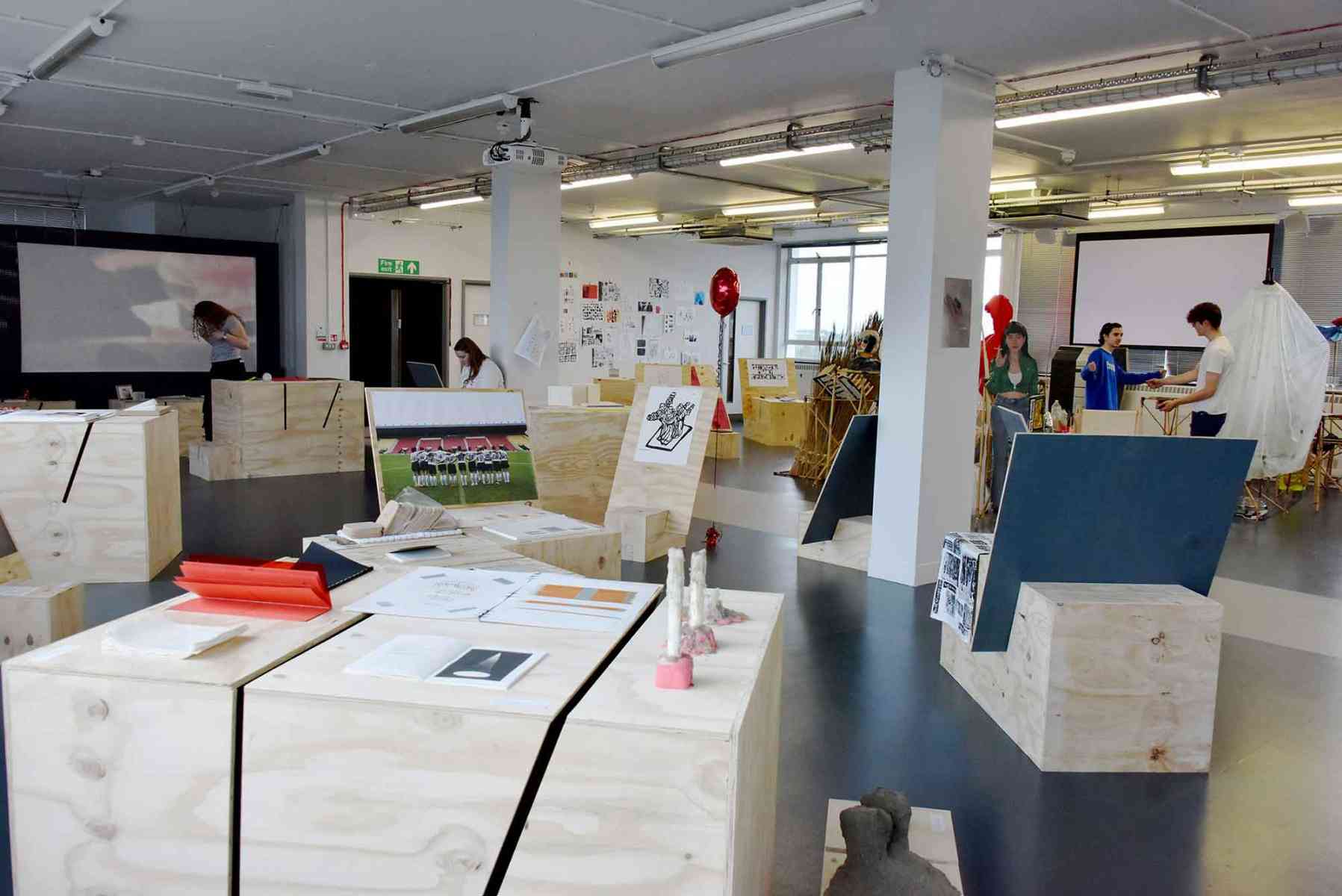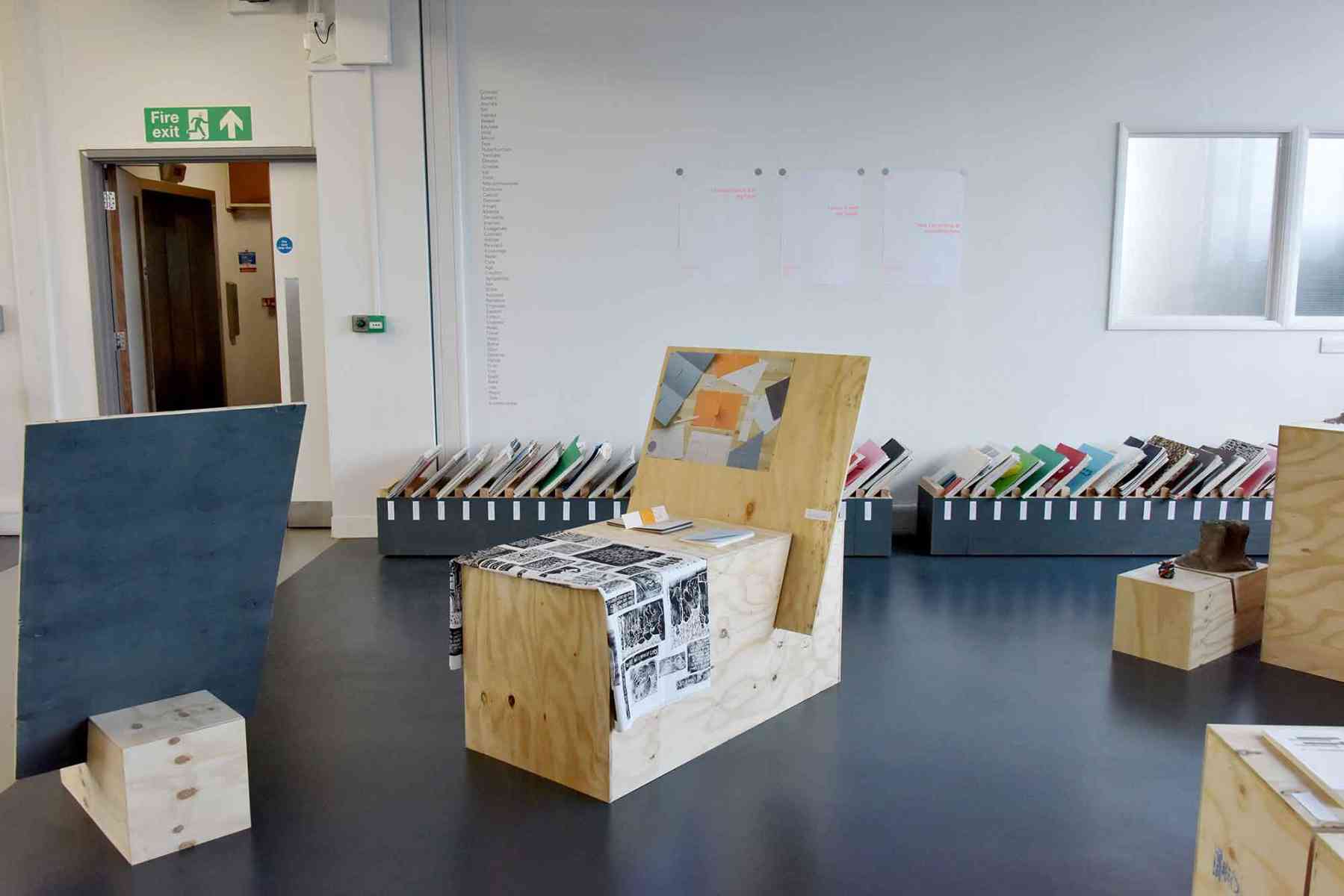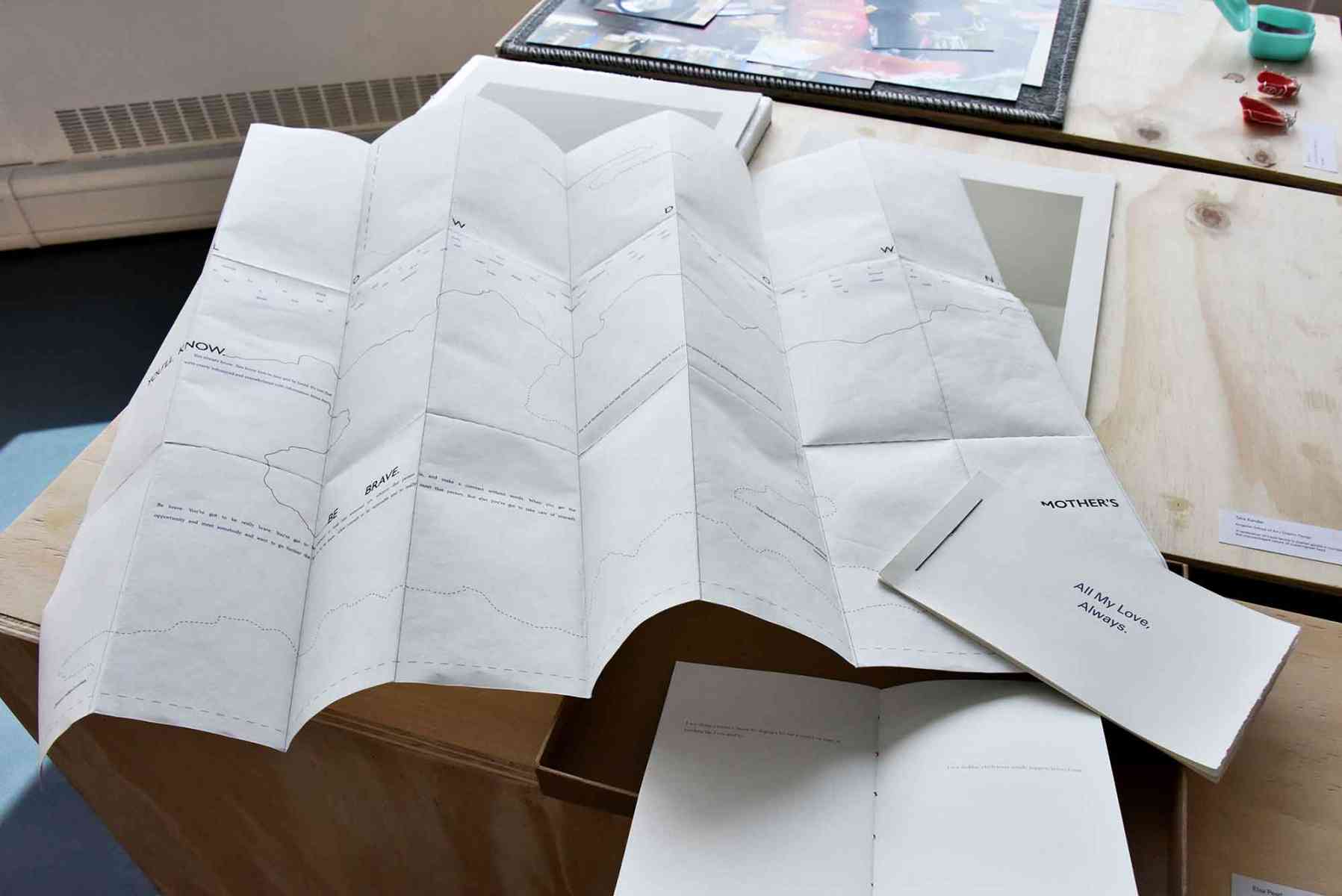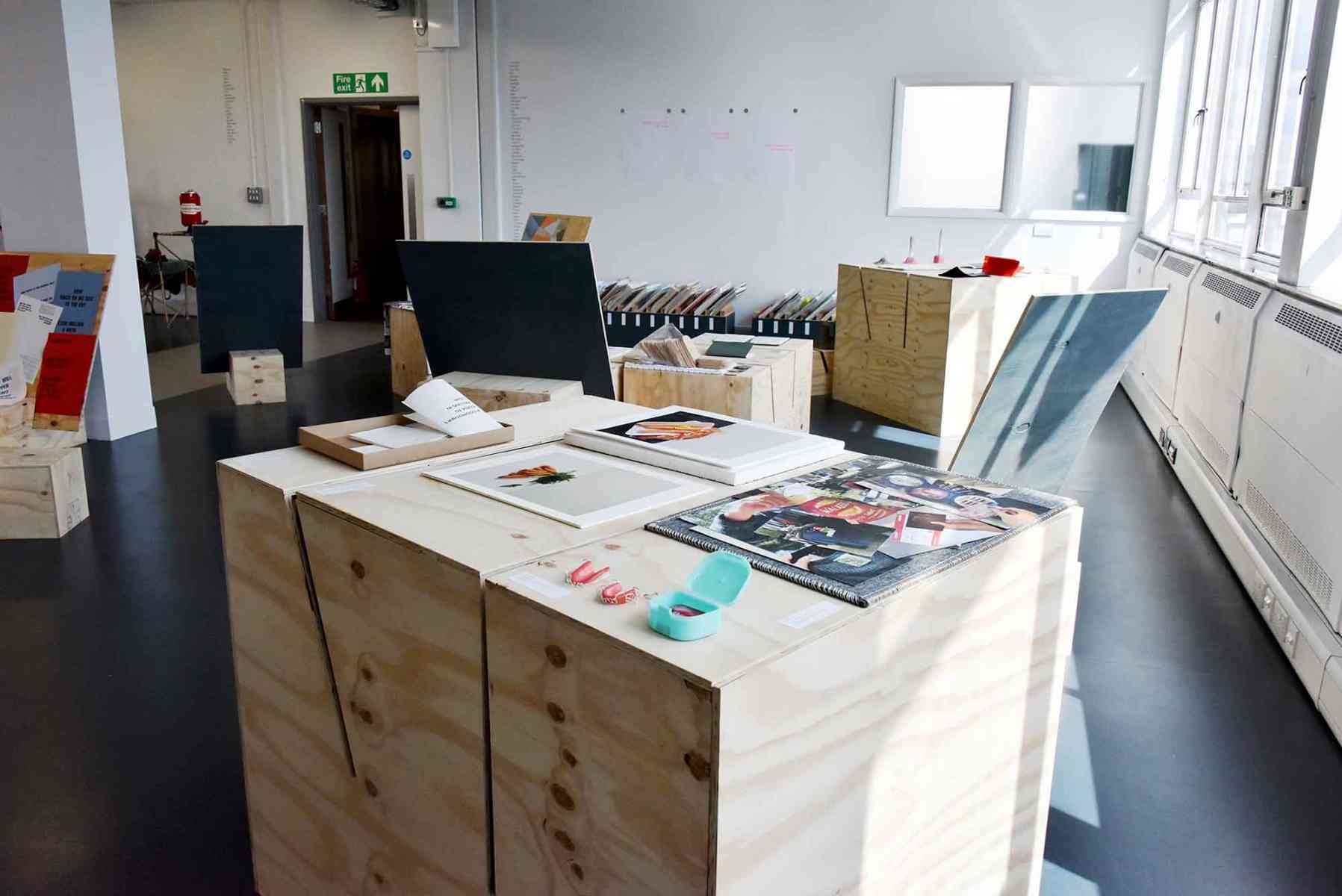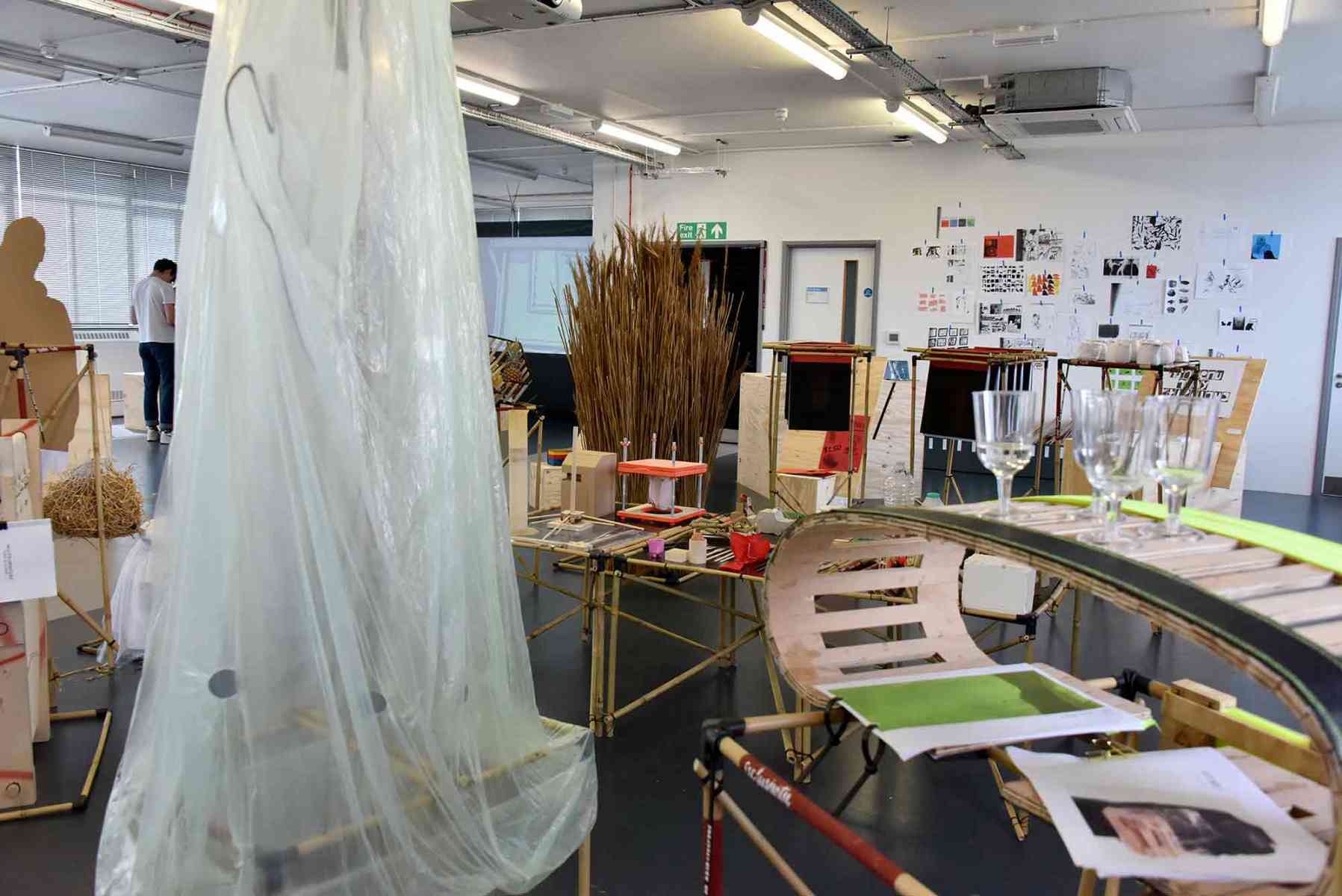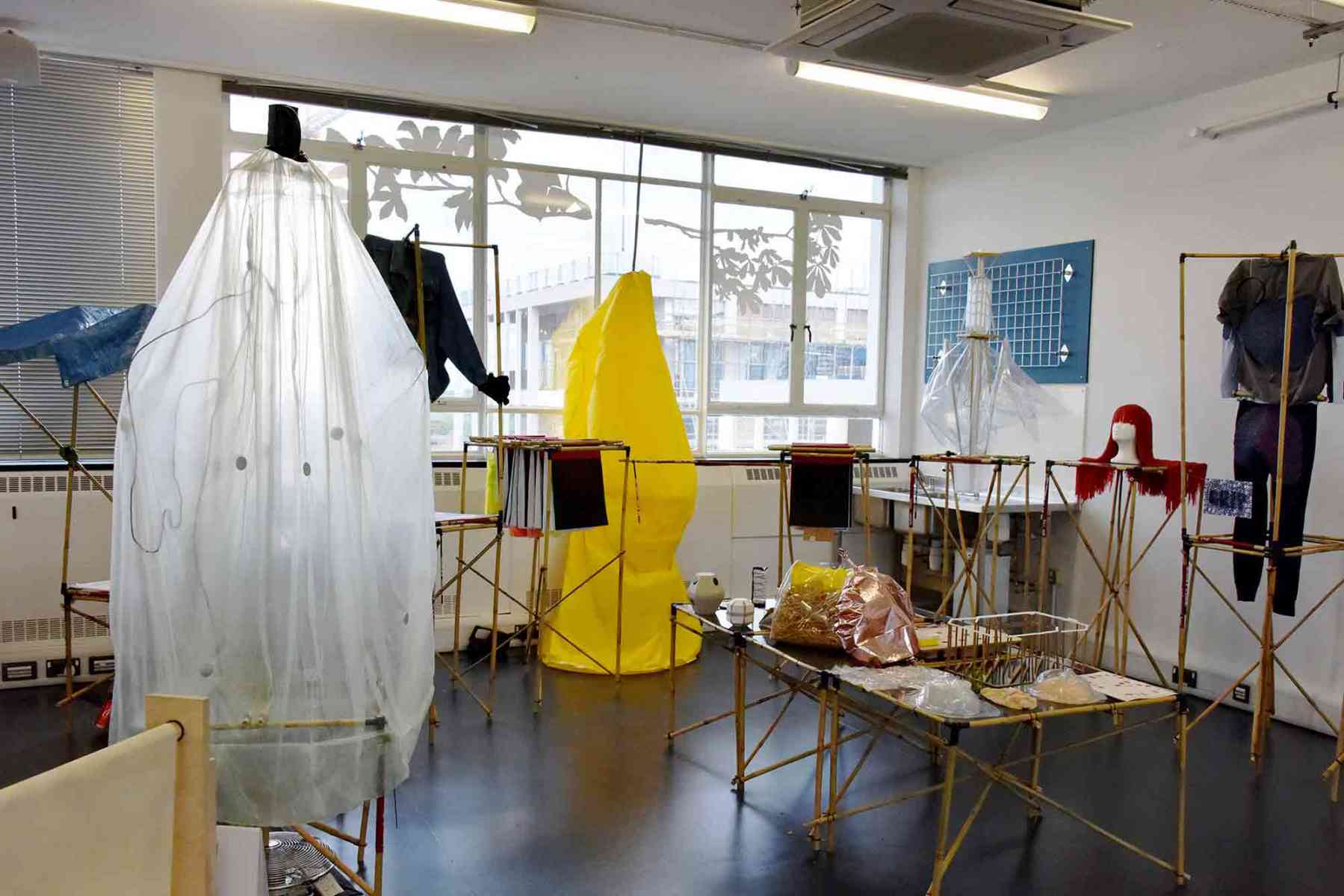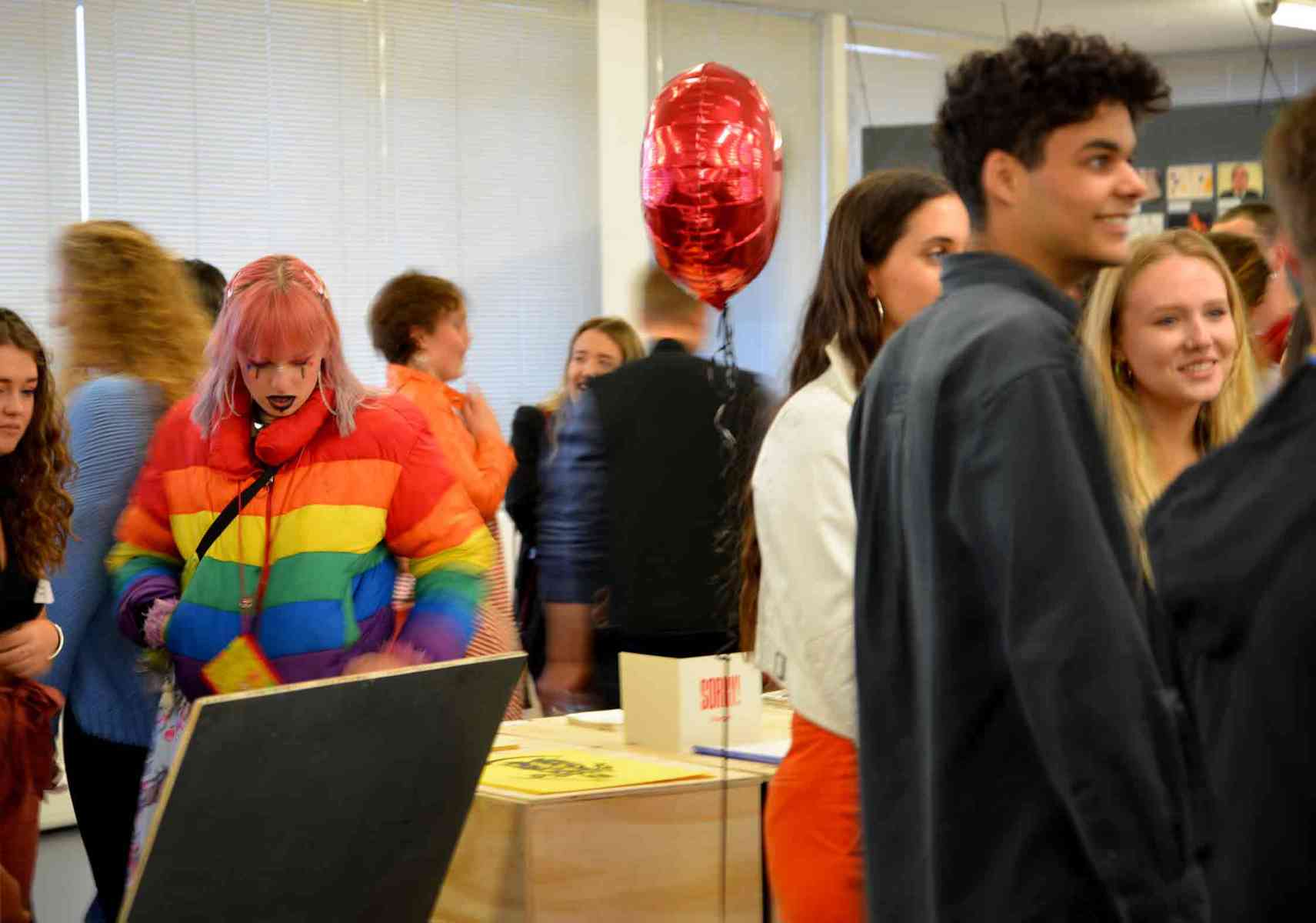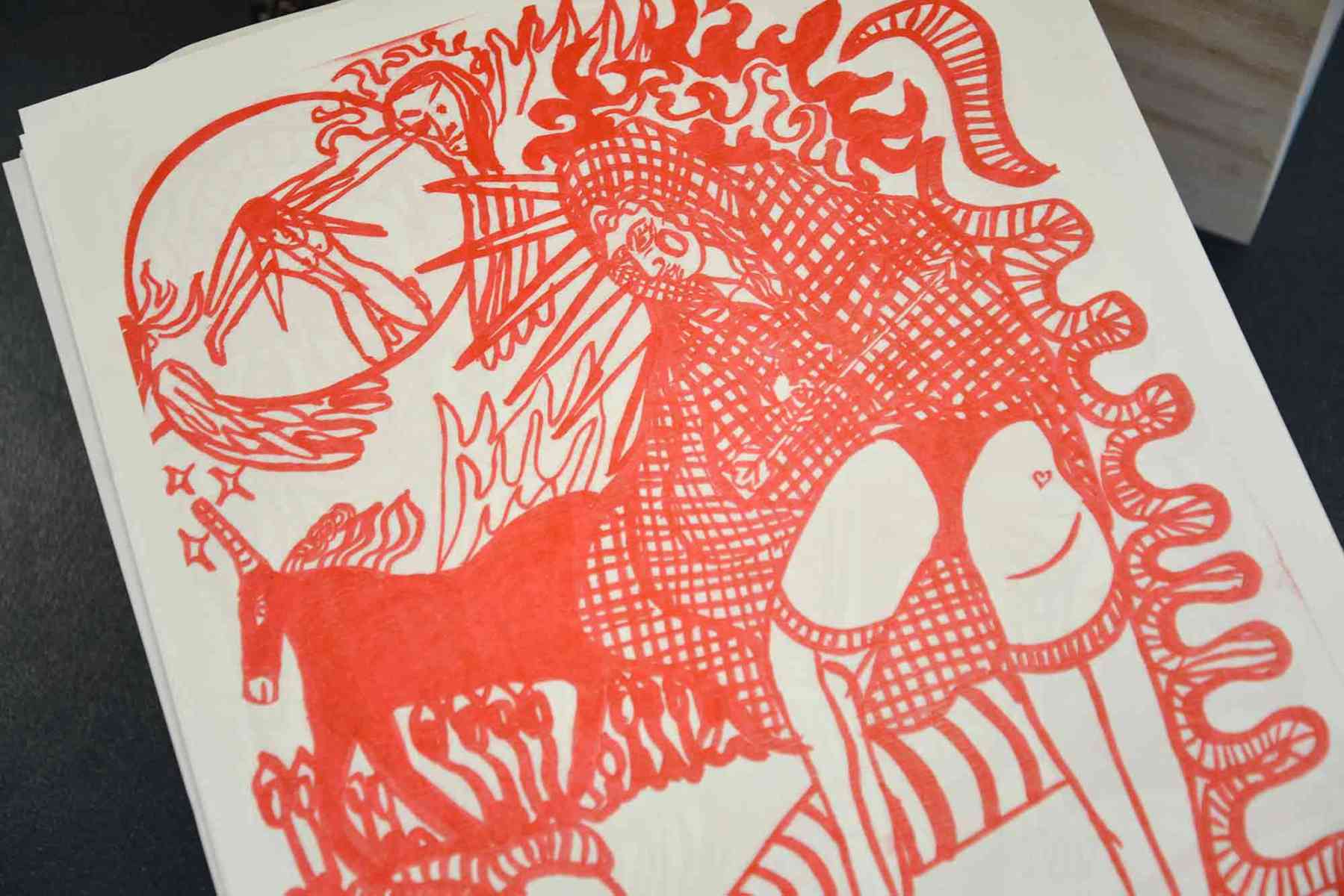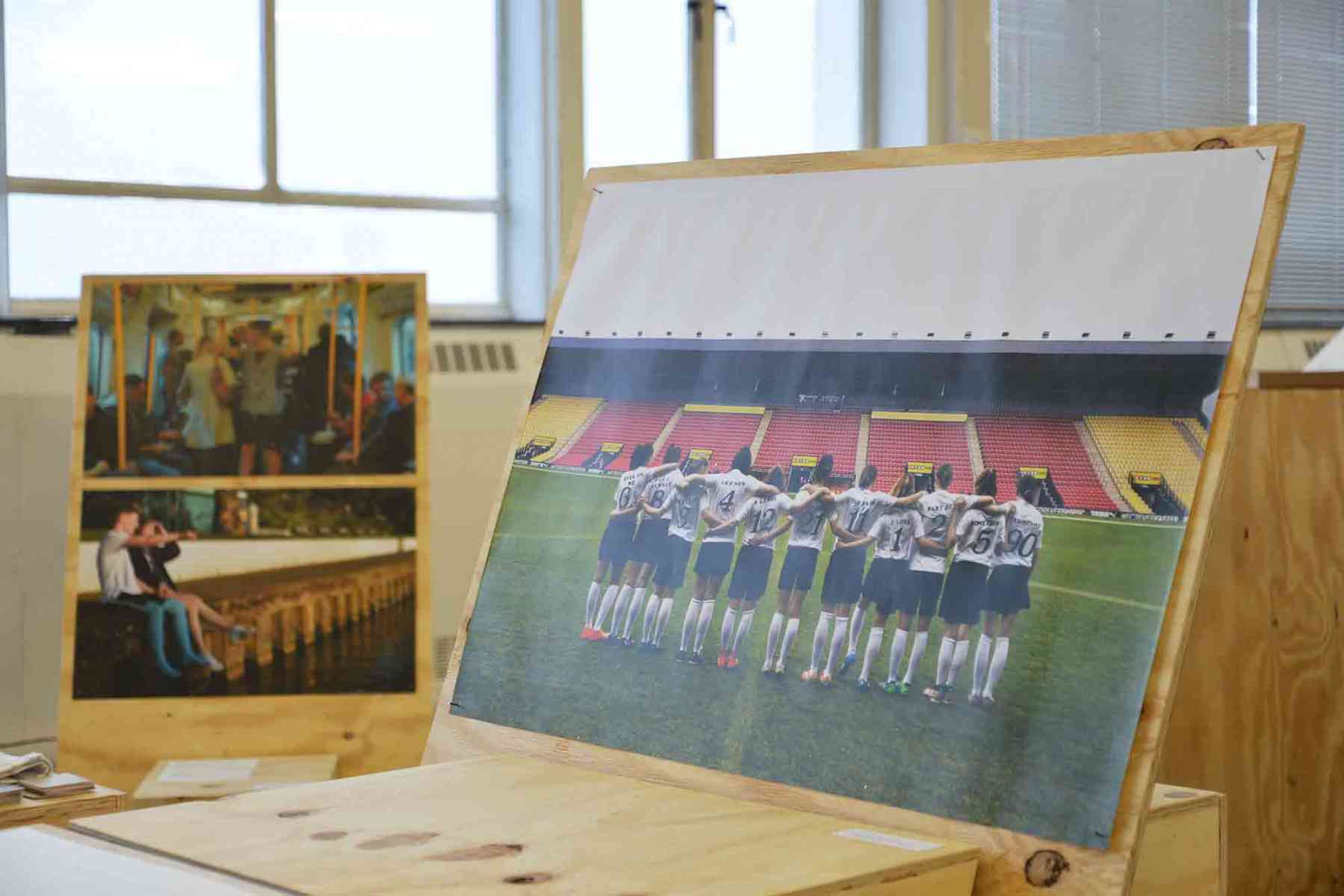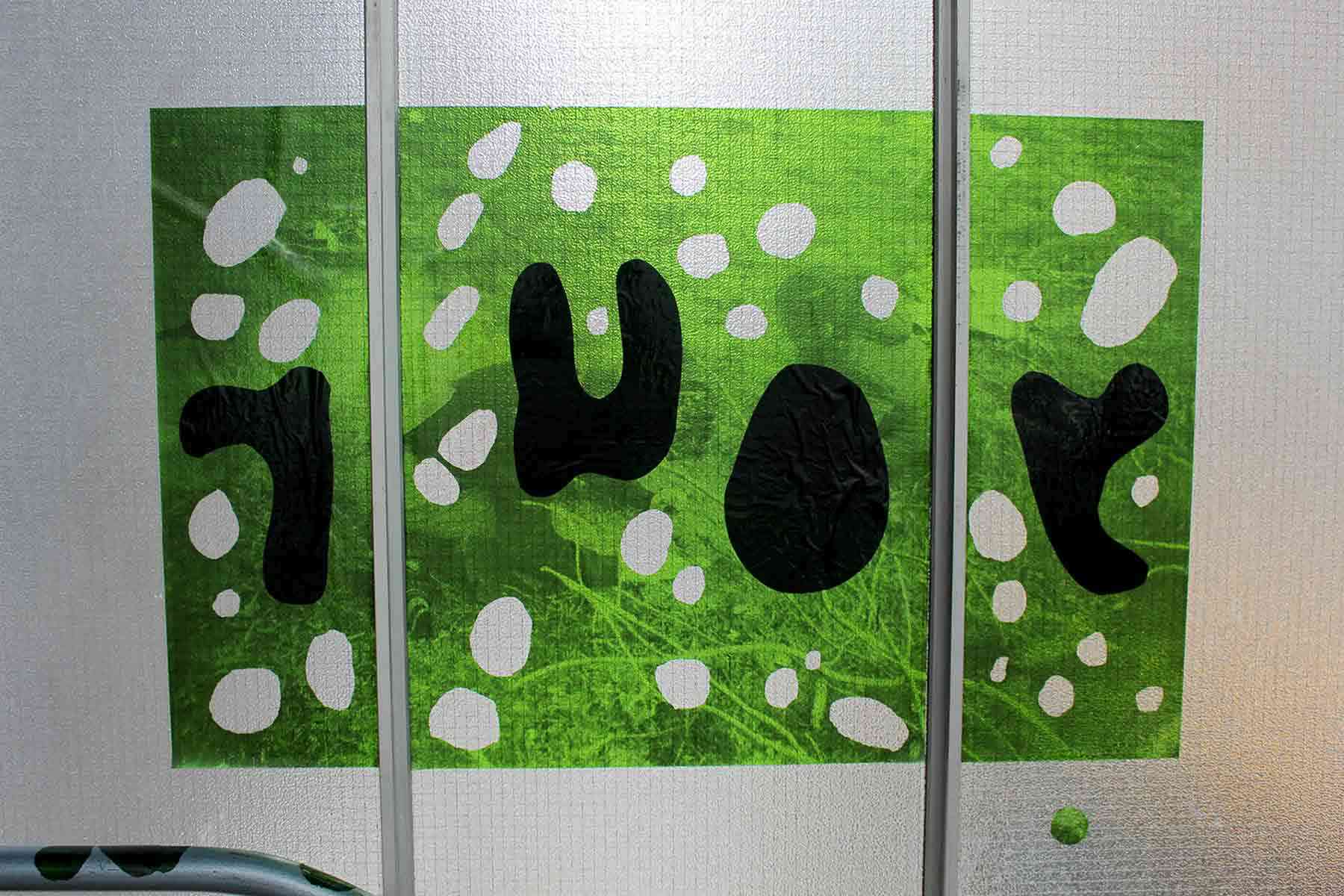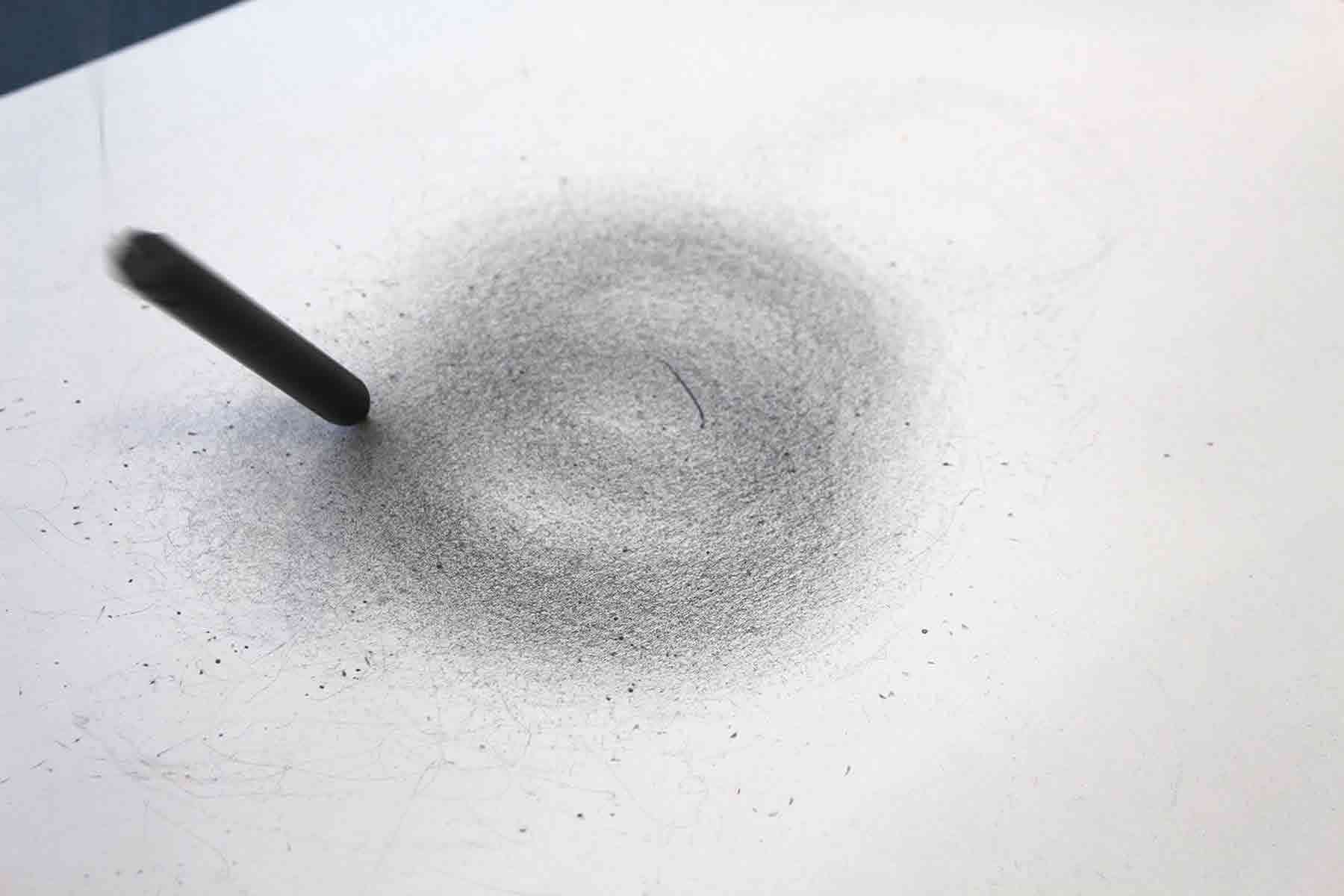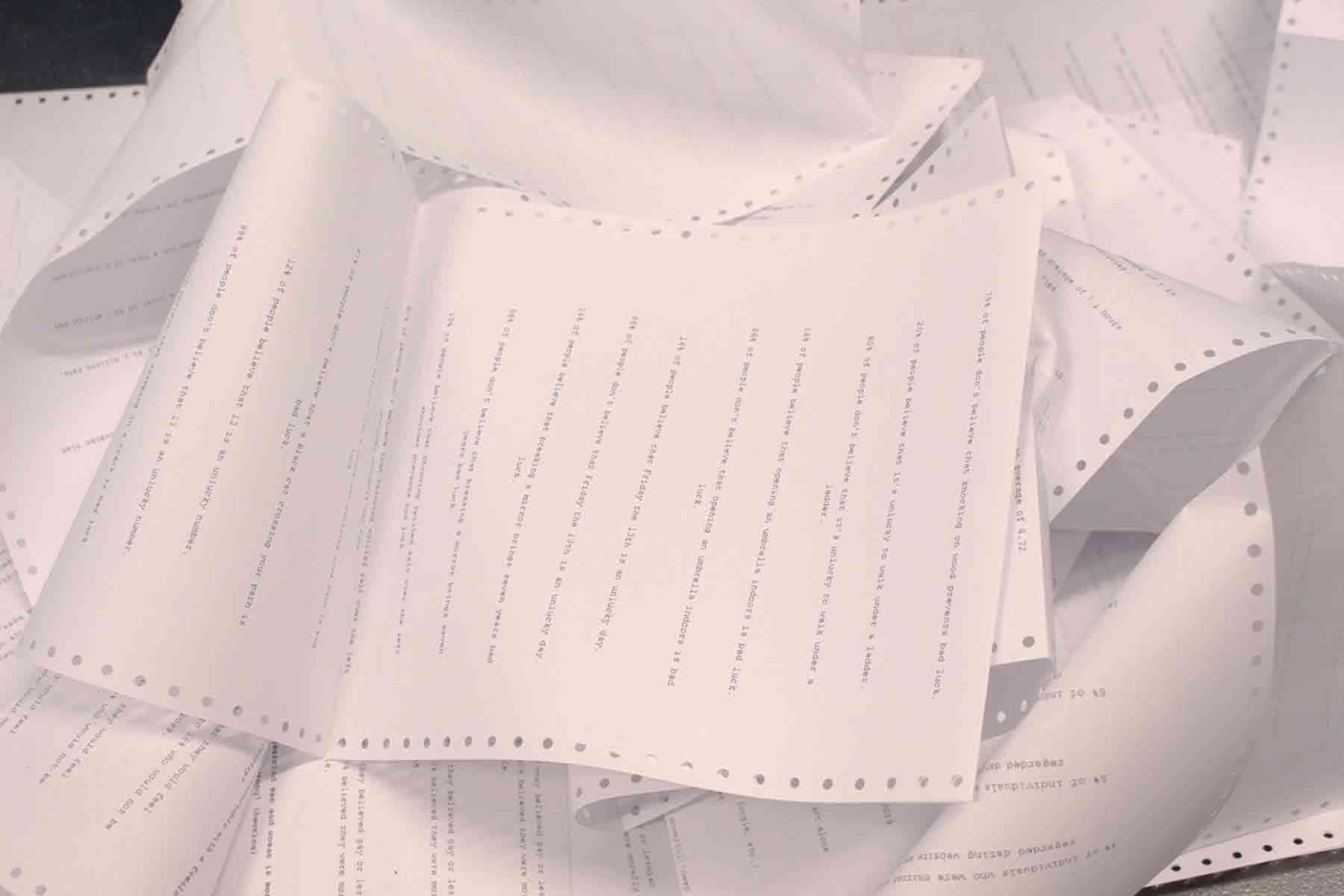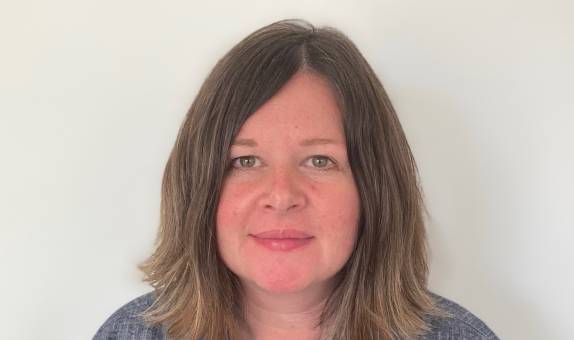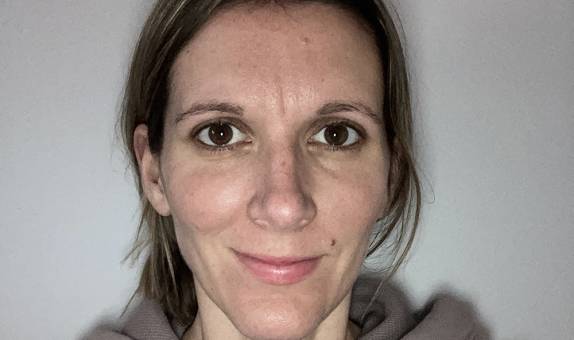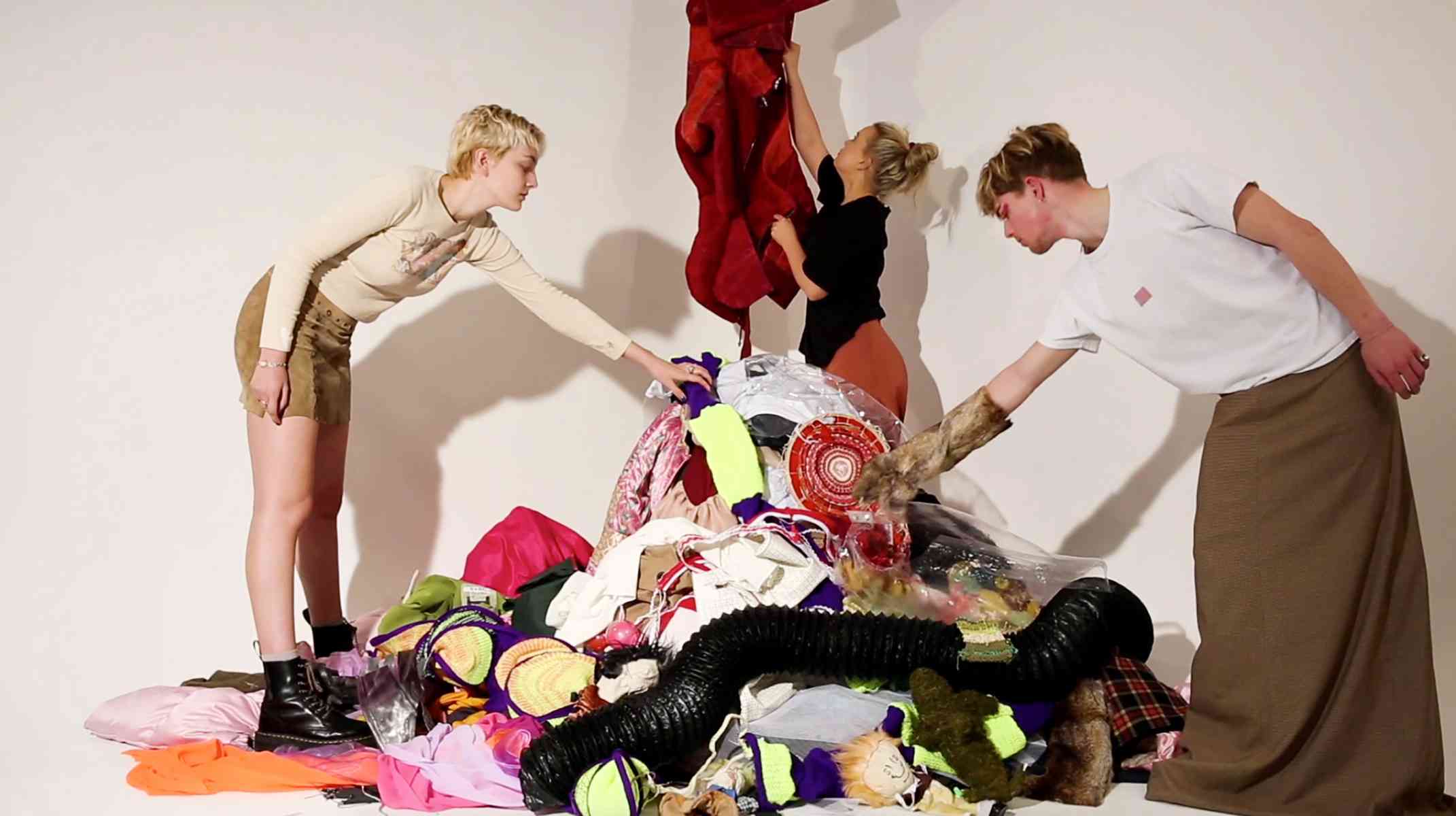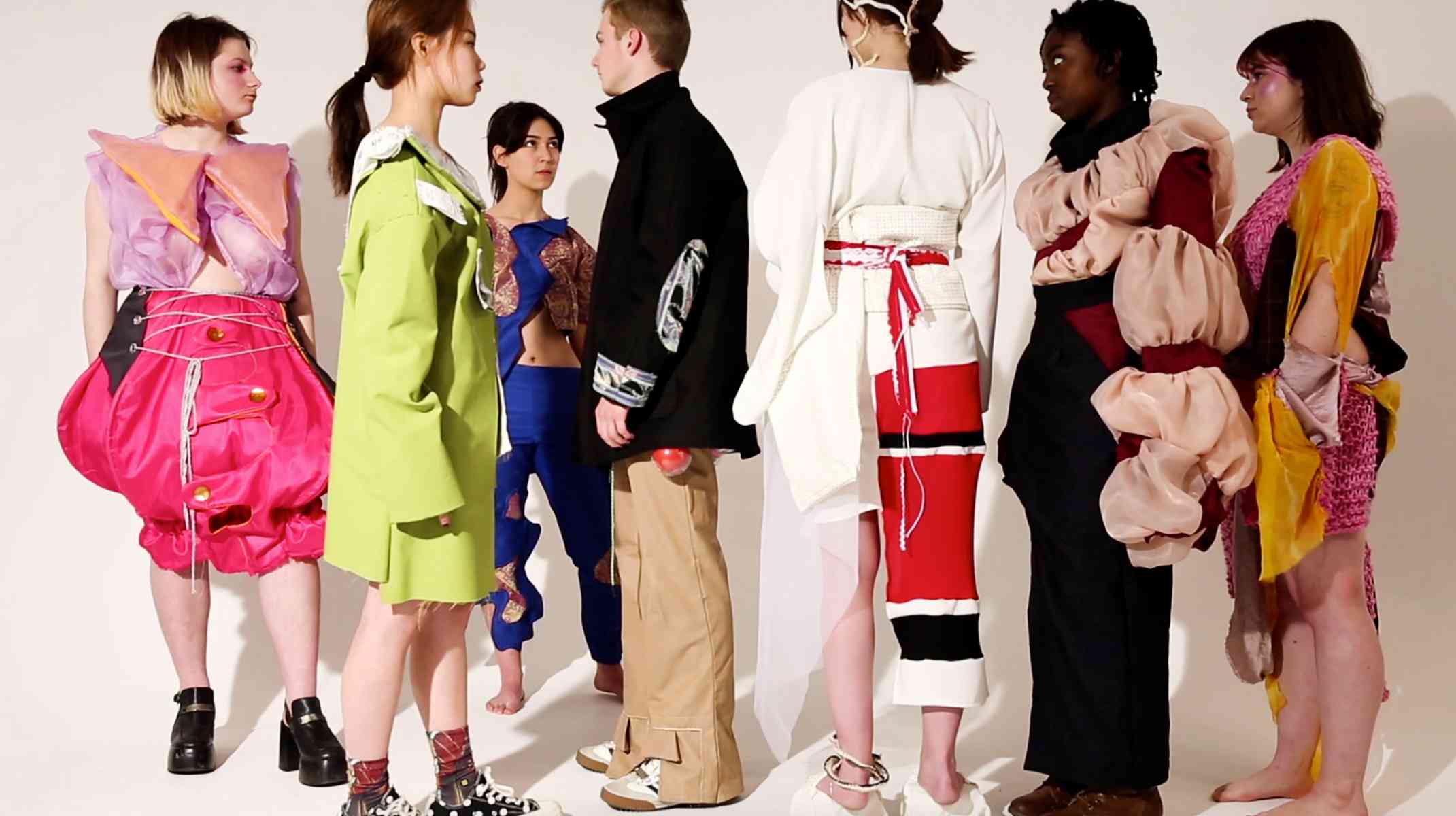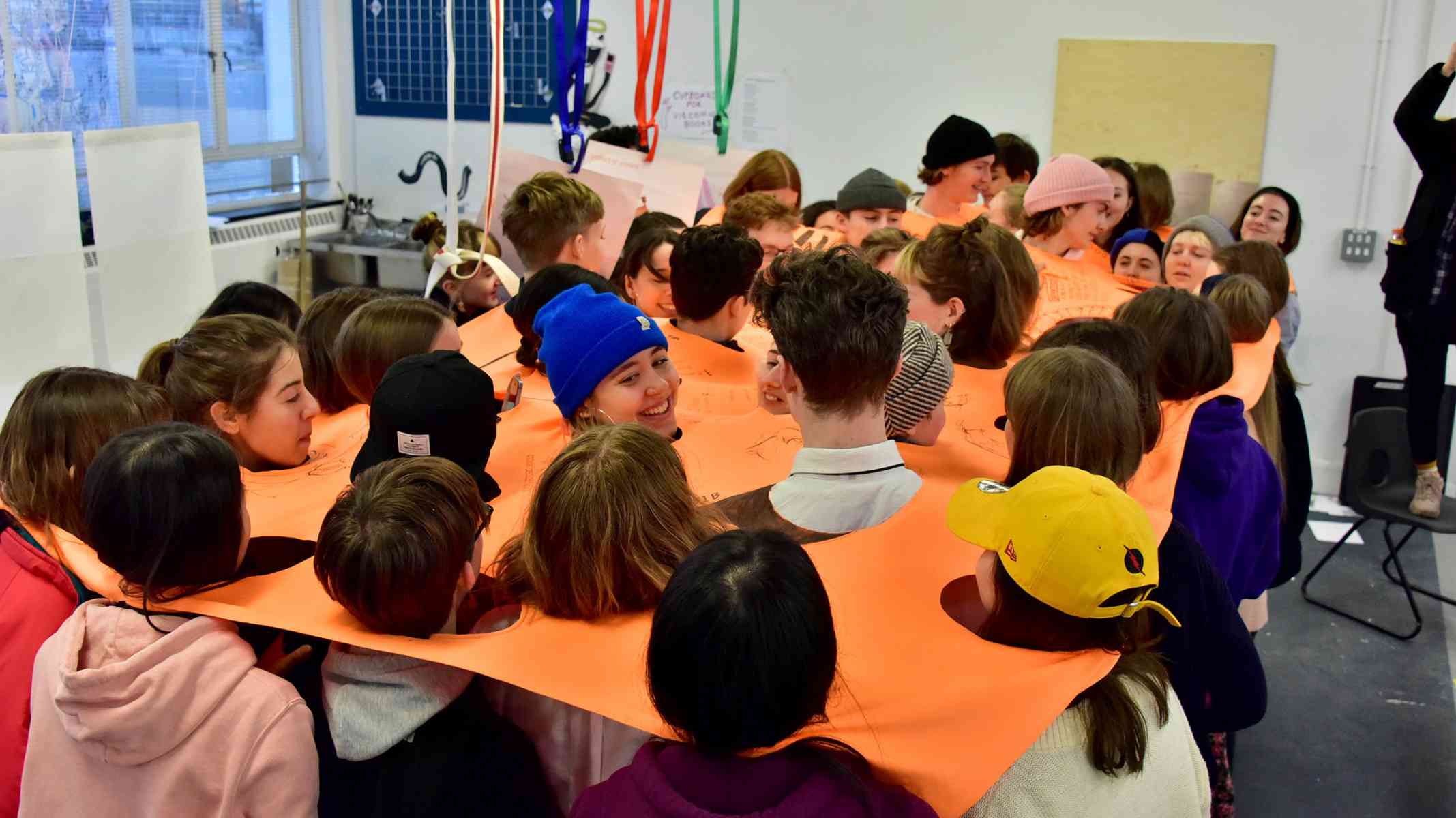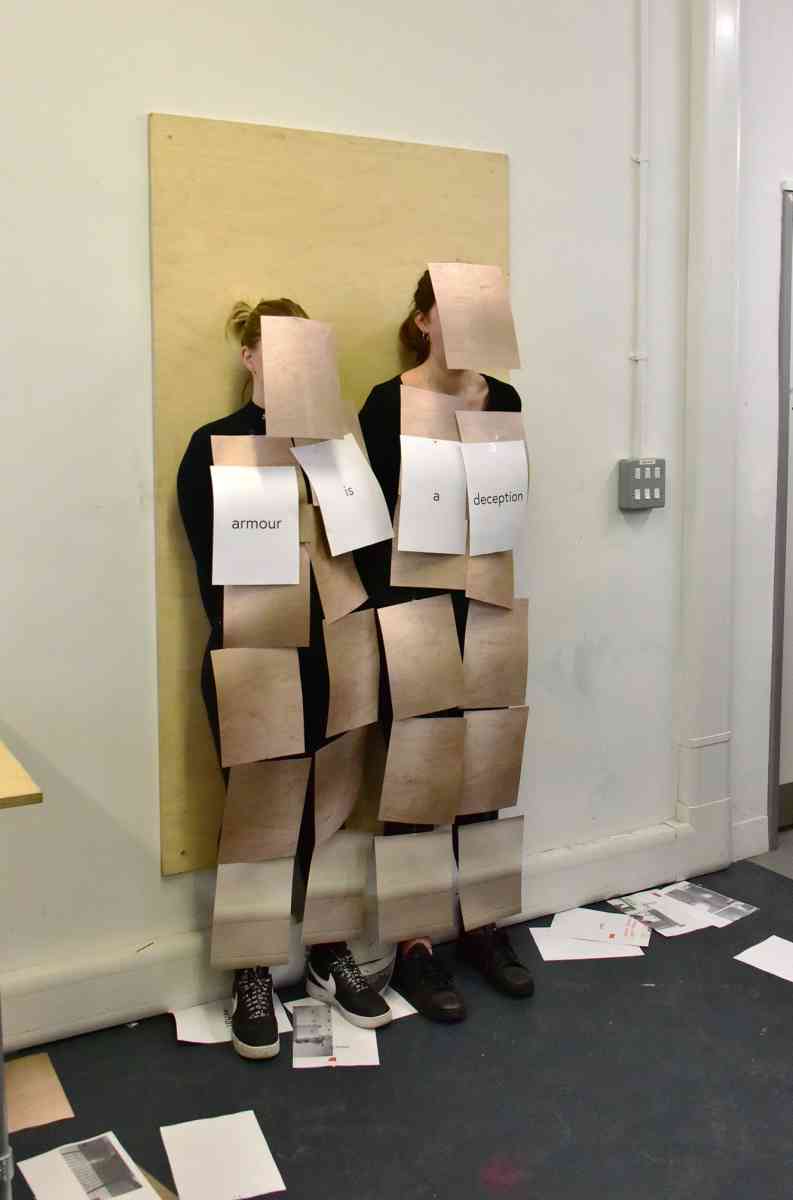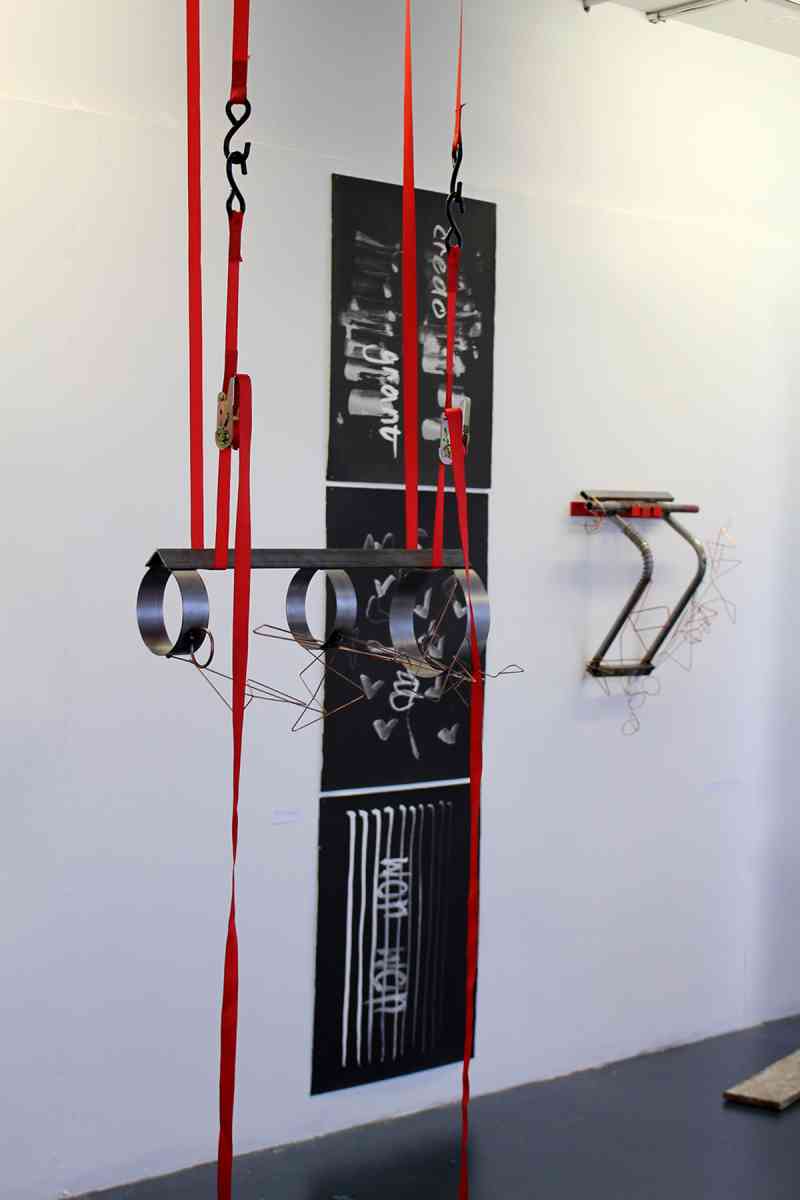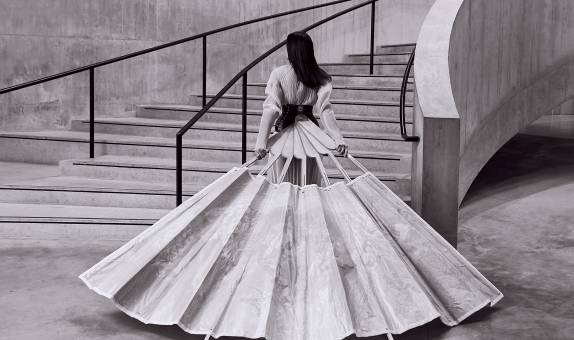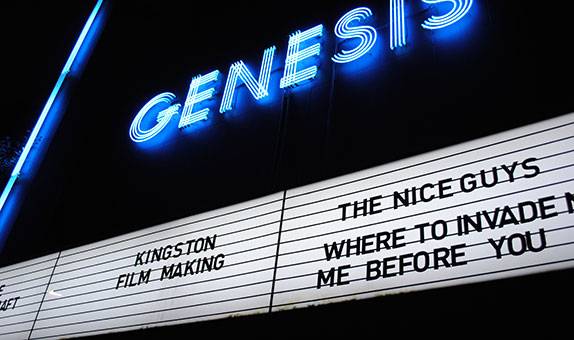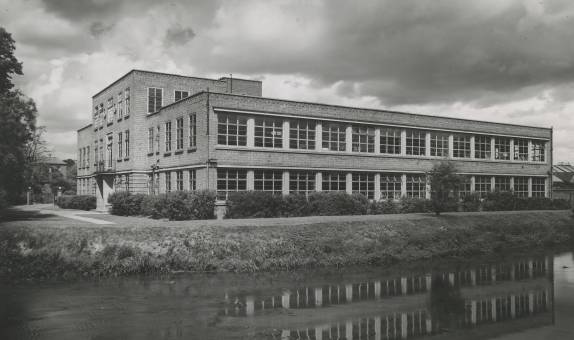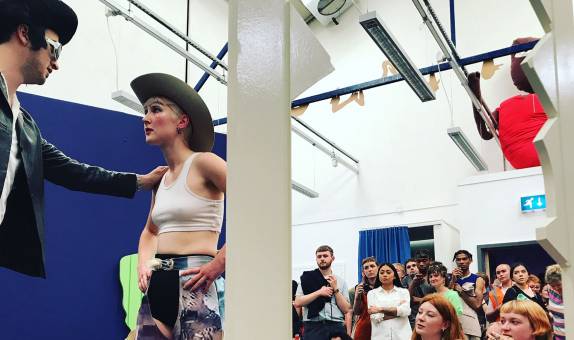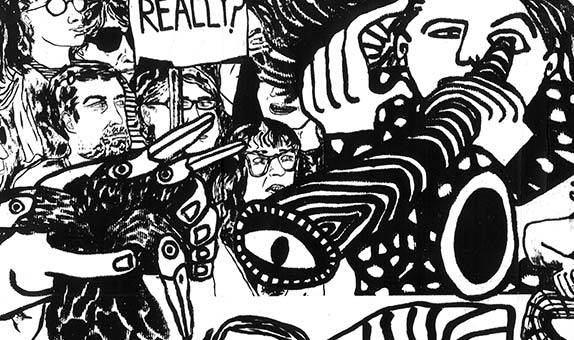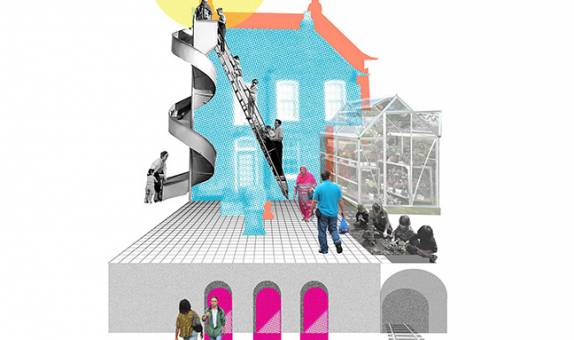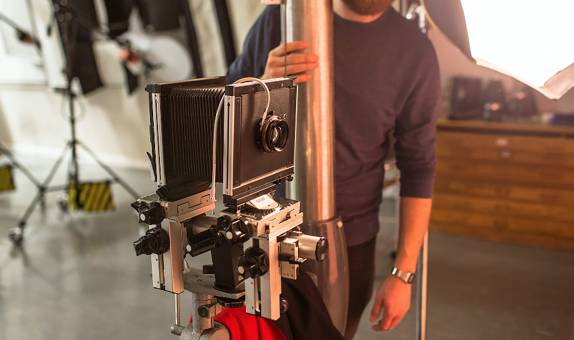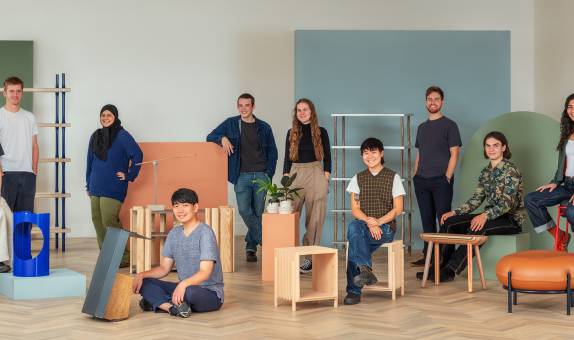Foundation Diploma in Art, Design & Media Practice
Why choose this course?
This Foundation Diploma in Art, Design and Media Practice is accredited by Pearson and prepares you for the study of art and design at degree level. You'll gain an understanding of visual communication, 3D design, fashion & fabrication and fine art. You'll explore a wide range of applied creative practices, developing your creative voice and helping you to identify the area of further study that best suits you.
You'll be taught by a broad range of tutors who are all creative practitioners. The tutors will engage you in a critical investigation of your work, progression aims and ambitions. You'll take part in regular research and drawing trips; studio, gallery and museum visits to London also form part of the course.
Central to the course is a vibrant studio culture, which fosters individual creative identities as well as championing the value of collaborative practice.
Please view our portfolio guidance to assist with your application.
Application deadlines
Please note that applications for September 2024 entry are now closed. We will begin accepting online applications from November 2024 for the next course entry which will begin in September 2025.
| Attendance | Year of entry |
|---|---|
| 1 year full time | 2025 |
Please note: Teaching on this course may take place on more than one KU campus.
Please note: This qualification is awarded by Pearson, not by Kingston University.
| Main Location | Kingston School of Art at Penrhyn Road |
Reasons to choose Kingston University
- You'll use the excellent resources at Kingston School of Art's Knights Park campus, working on joint projects with degree students and live briefs whenever possible.
- You'll work in small groups of students, with regular one-to-one guidance from tutors and industry professionals.
- You'll have multiple opportunities to visit studios, galleries and museums in London, and participate in research and drawing trips as part of the course.
The Art School Experience
As part of Kingston School of Art, students on this course benefit from joining a creative community where collaborative working and critical practice are encouraged.
Our workshops and studios are open to all disciplines, enabling students and staff to work together, share ideas and explore multi-disciplinary making.

What you will study
The Foundation Diploma in Art & Design course focuses on four main areas:
- Visual communication - graphic design, illustration, animation, film photography, advertising, bookbinding, art direction, social design, fashion communication.
- 3D design - product design, furniture design, architecture, landscape architecture, interior design, prop and set design.
- Fashion and fabrication - menswear, womenswear, costume and constructed textiles
- Fine art - painting, mixed media, printmaking, installation, sculpture, performance and photography.
Please note
Places are limited and the number of applicants is extremely high. We expect applicants to have attended one of our open days. You'll hear more about the course, meet staff, visit the ground-breaking workshops and studio spaces at our Knights Park campus, where many art and design courses are based, and receive guidelines about how to apply and what to include in your portfolio.
Course content
The course runs from September to June and is divided into three parts.
Part 1 - Core skills + rotation
The course begins by introducing fundamental principles, techniques & skills important to all specialism pathways. This is followed by a 4-week rotation which gives you the opportunity to experience each of the four specialism areas helping you to make an informed choice about the area you will choose.
Part 2 - Specialism
During specialism you'll explore your subject choice in detail and broaden your technical and conceptual skills. You'll also prepare your portfolio for degree-level application, with support from your specialism tutors.
Part 3 - Final Major Project
In the final term you will complete an extended self-directed project using the knowledge, skills and confidence you have acquired. The project culminates with a public exhibition and end of course celebration.
This Pearson BTEC Foundation Diploma in Art, Design & Media Practice is split into the Exploratory Phase (Rotation and Specialism) and Confirmatory Phase (Final Major Project), which share the same assessment criteria. All students will be provided with the Foundation Student Dictionary, which contains clear details of the course structure and its assessment criteria.
Core stages
Exploratory stage
Practical experimentation and skills development
credits
Broadening your creative skillset through a mixture of independent and collaborative workshops, briefs, lectures and presentations.
Understanding creative processes
credits
Supporting you to identify your aims, ambitions and strengths in order to make informed decisions about your creative practice and future.
Exploring specialist pathways
credits
Gaining industry specific knowledge and confidence in the creative field you wish to study.
University application and portfolio development
credits
Building an exciting portfolio for University applications that showcases your best work and personality. Tutors share their expertise to help you make progression choices that are right for you.
Content areas: investigation, experimentation, evaluation and review, realisation, communication, self-directed practice
credits
You will have two formative assessments during the Exploratory stage to discuss your work with your tutors, identify strengths and areas of development.
Confirmatory stage
Final Major Project
credits
In the final term you will complete an extended self-directed project using the knowledge, skills and confidence you have acquired.
Exhibition/presentation
credits
Your Final Major Project culminates with a public exhibition and end of course celebration.
Summative assessment
credits
Summative assessment takes place at the end of the Confirmatory stage.
Future Skills
Knowledge to give you the edge
Embedded within every course curriculum and throughout the whole Kingston experience, Future Skills will play a role in shaping you to become a future-proof graduate, providing you with the skills most valued by employers such as problem-solving, digital competency, and adaptability.
As you progress through your degree, you'll learn to navigate, explore and apply these graduate skills, learning to demonstrate and articulate to employers how future skills give you the edge.
At Kingston University, we're not just keeping up with change, we're creating it.

What our students say
Entry requirements
Teaching and assessment
Scheduled learning and teaching on this course includes timetabled activities including lectures, seminars and small group tutorials.
It may also include critiques, project work, studio practice and performance, digital labs, workshops, and placements.
Gallery of student work
Who teaches this course?
All members of staff are practising artists and designers, which means their teaching includes up-to-date professional experience. They can tell you what life in industry is really like and they'll give you guidance on how to balance creating inspiring, challenging work with meeting the needs of your client.
Many of our tutors are highly successful, award-winning artists and designers. For example, staff members have won national illustration and D&AD design awards.
Fees and funding
Additional costs
Depending on the programme of study, there may be extra costs that are not covered by tuition fees which students will need to consider when planning their studies. Tuition fees cover the cost of your teaching, assessment and operating University facilities such as the library, access to shared IT equipment and other support services. Accommodation and living costs are not included in our fees.
Where a course has additional expenses, we make every effort to highlight them. These may include optional field trips, materials (e.g. art, design, engineering), security checks such as DBS, uniforms, specialist clothing or professional memberships.
Facilities
You'll use our dedicated Foundation studio spaces and facilities to experiment and explore new ways to push the boundaries of projects and open discourse across disciplines.
Collaborative and multi-disciplinary teamwork is actively encouraged between students.
Throughout the course, you'll be encouraged to explore different materials, processes and ideas through experimentation.
Although you'll be taught at Penrhyn Road, you'll also have access to the state-of-the-art workshop facilities at Knights Park, where many of our art and design degree courses are taught.
Portfolio advice
Portfolio showcase part 1
You can view this video for examples of what the course director will look for in an applicant's portfolio
Frequently-asked questions
We've collated the most-commonly asked questions regarding our Foundation Diploma at Kingston School of Art. We hope the answers help you make an informed decision.
After you graduate
Students progress to study courses such as architecture, fine art, graphic design, illustration animation, fashion, costume, filmmaking, photography, product and furniture design and interior design, often choosing to stay at Kingston University.
Please find below lists of our recent students' degree courses and destinations. What is paramount to our Foundation is to make sure our students get onto the course best suited to them.
Gallery of student work
Course changes and regulations
The information on this page reflects the currently intended course structure and module details. To improve your student experience and the quality of your degree, we may review and change the material information of this course. Course changes explained.
Programme Specifications for the course are published ahead of each academic year.
Regulations governing this course can be found on our website.
